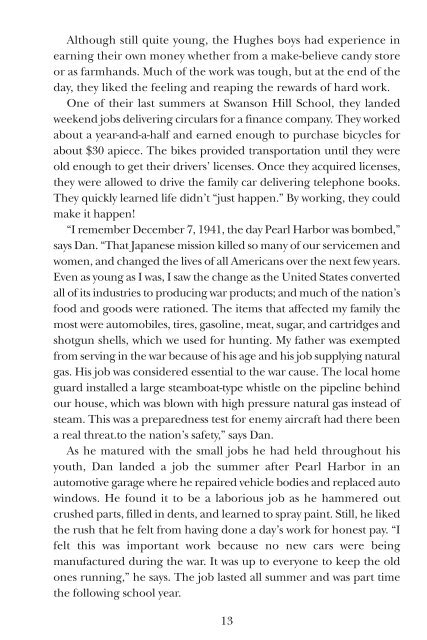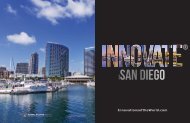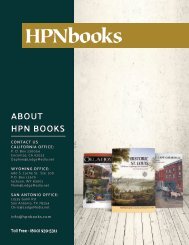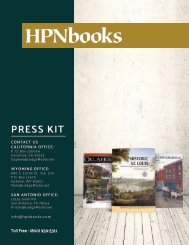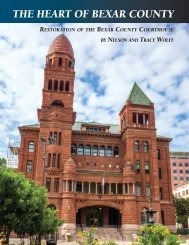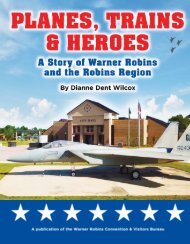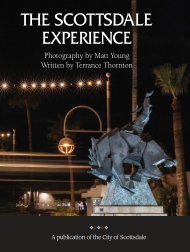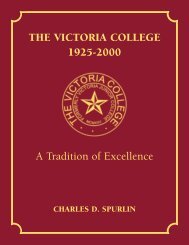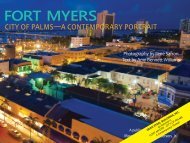Create successful ePaper yourself
Turn your PDF publications into a flip-book with our unique Google optimized e-Paper software.
<strong>Dan</strong> <strong>Hughes</strong> biography-chapter 1_Layout 1 2/17/2016 2:51 PM Page 13<br />
Although still quite young, the <strong>Hughes</strong> boys had experience in<br />
earning their own money whether from a make-believe candy store<br />
or as farmhands. Much of the work was tough, but at the end of the<br />
day, they liked the feeling and reaping the rewards of hard work.<br />
One of their last summers at Swanson Hill School, they landed<br />
weekend jobs delivering circulars for a finance company. <strong>The</strong>y worked<br />
about a year-and-a-half and earned enough to purchase bicycles for<br />
about $30 apiece. <strong>The</strong> bikes provided transportation until they were<br />
old enough to get their drivers’ licenses. Once they acquired licenses,<br />
they were allowed to drive the family car delivering telephone books.<br />
<strong>The</strong>y quickly learned life didn’t “just happen.” By working, they could<br />
make it happen!<br />
“I remember December 7, 1941, the day Pearl Harbor was bombed,”<br />
says <strong>Dan</strong>. “That Japanese mission killed so many of our servicemen and<br />
women, and changed the lives of all Americans over the next few years.<br />
Even as young as I was, I saw the change as the United States converted<br />
all of its industries to producing war products; and much of the nation’s<br />
food and goods were rationed. <strong>The</strong> items that affected my family the<br />
most were automobiles, tires, gasoline, meat, sugar, and cartridges and<br />
shotgun shells, which we used for hunting. My father was exempted<br />
from serving in the war because of his age and his job supplying natural<br />
gas. His job was considered essential to the war cause. <strong>The</strong> local home<br />
guard installed a large steamboat-type whistle on the pipeline behind<br />
our house, which was blown with high pressure natural gas instead of<br />
steam. This was a preparedness test for enemy aircraft had there been<br />
a real threat.to the nation’s safety,” says <strong>Dan</strong>.<br />
As he matured with the small jobs he had held throughout his<br />
youth, <strong>Dan</strong> landed a job the summer after Pearl Harbor in an<br />
automotive garage where he repaired vehicle bodies and replaced auto<br />
windows. He found it to be a laborious job as he hammered out<br />
crushed parts, filled in dents, and learned to spray paint. Still, he liked<br />
the rush that he felt from having done a day’s work for honest pay. “I<br />
felt this was important work because no new cars were being<br />
manufactured during the war. It was up to everyone to keep the old<br />
ones running,” he says. <strong>The</strong> job lasted all summer and was part time<br />
the following school year.<br />
13


